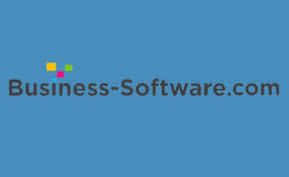ERP
ERP Education: Losing Our Religion

Most ERP software packages are designed around industry accepted business practices, operating philosophies and techniques that have evolved over many years. Today, the issue is not whether there is a body of knowledge with supporting software tools, the question is… are companies educated enough to understand the proper use of the tools?
First, many organizations have lost sight of the fact that there is a difference between ERP education and ERP software training. End-user software training is very important, but it is mainly about how to perform transactions in the system and how these transactions related to your business processes. However, this can be very different from understanding the original design intent of the system or the correct application of the software capabilities.
Training – Understanding how to perform transactions
Education – Understanding the design intent of the system or the correct application of software capabilities
The issue of education vs. software training is analogous to training someone to fly a Dreamliner airplane, but not educating them on the concepts of jet propulsion or flight. This is a scary propositions, but in terms of ERP, it is about failure to achieve the system benefits, or an excessive number of software modifications (in order to reinvent the solutions wheel).
At the root of the problem is senior managers and end-users never did change their behaviors to take advantage of the tools; and a big part of this is lack of education.
Keep in mind, education is more than just a seminar of “best practices” put on by a software vendor (with a hidden agenda) in room full of 300 other clients. It is about getting some real independent education, not focused on any specific package.
Education as Part of the Methodology
There once was a time when ERP education was woven into the standard implementation methodology. Interesting enough, the implementation success rates were much higher then.
For example, the great Joseph Orlicky wrote the first groundbreaking book on the topic of MRP (forerunner to ERP) back in 1975. It focused on the concepts and techniques to plan and control materials in a manufacturing plant. However, the most interesting thing is Mr. Orlicky (an employee of IBM) never glorified the role of the computer. He believed if one did not understand the underlying principles of MRP, the computer was not much help anyway.
“ERP is not a computer system, it is a people system made possible by the computer.”
– Joseph Orlicky
The late Ollie Wight (the godfather of MRPII/ERP) said it best: “ERP is not a computer system, it is a people system made possible by the computer.” Orlickly and Wight went on to build and grow the “religion” called APICS (The American Production and Inventory Control Society). The best thing that ever happened to manufacturing practitioners. Every industry or discipline has a great religion, so become a scholar of yours.
Back to Basics
It might be time to get back to the basics of blocking and tackling when it comes to education on ERP and accepted business practices. No, education is not glamorous; so proposing it will not make you an instant hero. But it is the stuff ERP success stories are made of. If Ollie knew what was going on today, he would roll over in his grave.
Looking for more information?
Learn more about ERP implementation and solutions by visiting our ERP software resource page, where you’ll find articles, product reviews and other helpful resources. You can also browse side-by-side product comparisons in our selection of free Top ERP software reports.






